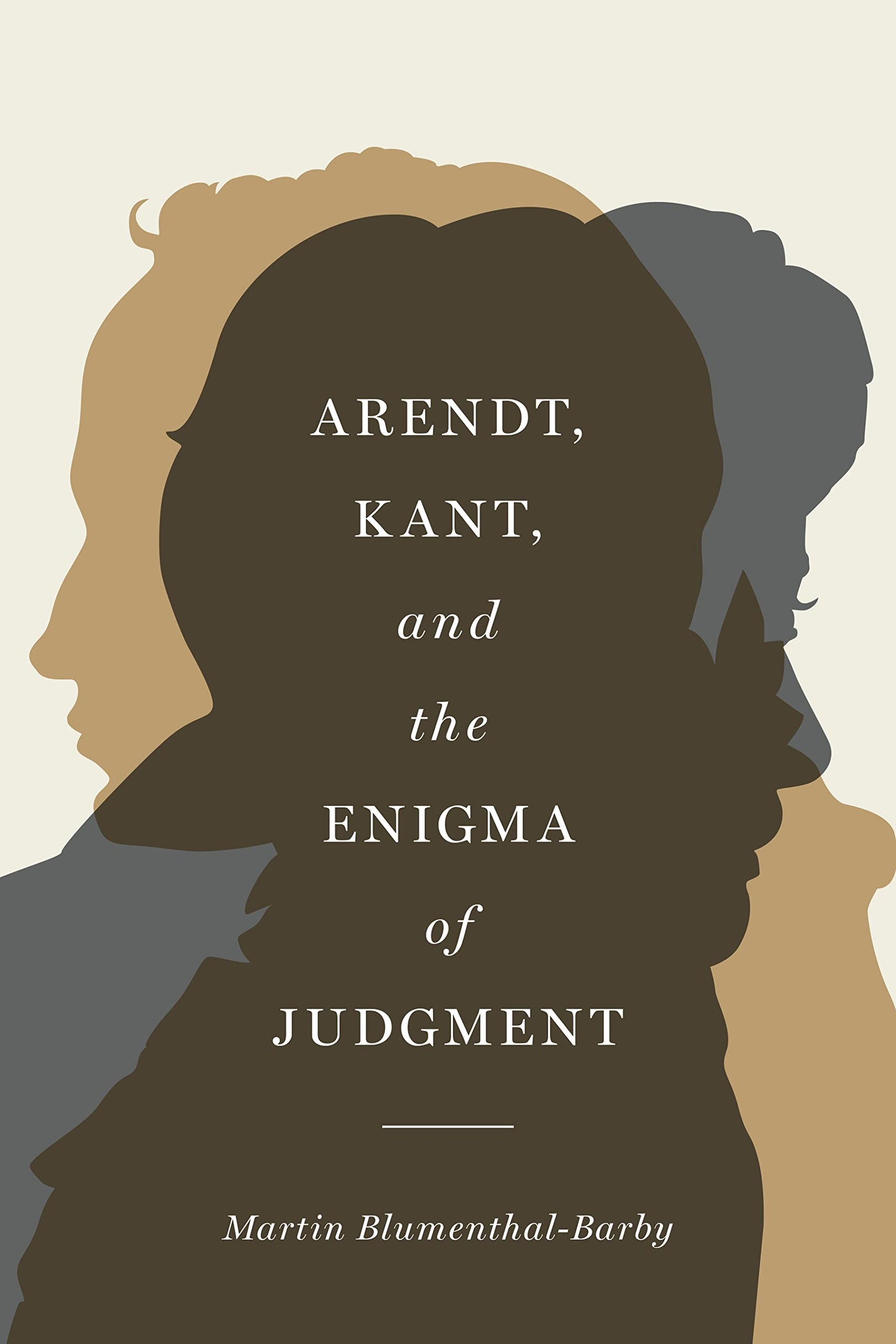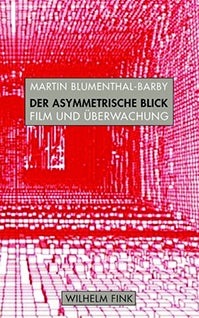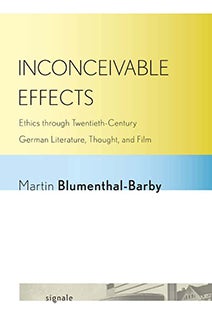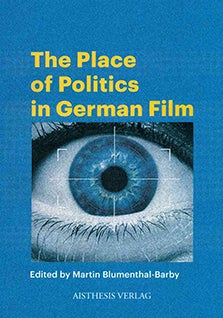Education
- PhD, Yale University
Research and Teaching
- Aesthetics and Literary Theory
- Film and Media Theory
- Philosophy
- German Studies
Fall 2024 Courses
- CMST 203- Introduction to Film Analysis
- GERM 332- New German Film: Hitler's Cinema
- GERM 491- Fall Individual Work German Literature
- GERM 493- Fall Honors Thesis
Martin Blumenthal-Barby studied German Literature, Philosophy, and Theory of Drama at the Freie Universität Berlin, Germany, at Cornell University, and at Yale University. At Rice, he also serves on the Steering Committee and is co-director of the Program in Cinema and Media Studies. Blumenthal-Barby was a Fellow at the Humanities Center, Stanford University (2011-12).
He is the author of four books. Inconceivable Effects (2013) probes the relationship between ethics and language. Cinema and Surveillance (2024) examines the link between surveillance and cinematic spectatorship. (The substantially different German version of this book, Der asymmetrische Blick, appeared in 2016.) His book Arendt, Kant, and the Enigma of Judgment (2022) offers a nuanced extrapolation of Arendt’s theory of judgment through her readings of Immanuel Kant. His current project explores the relationship between cinema and conceptions of “life.”
His research and teaching interests include German literature and philosophy from the eighteenth century to the present with a particular emphasis on nineteenth- and twentieth-century literature and aesthetics as well as German film and media theory.
Selected Publications
1. Books and Edited Volumes
- Cinema and Surveillance: The Asymmetric Gaze (New York, NY: Routledge, 2024).
- Arendt, Kant, and the Enigma of Judgment (Evanston, IL: Northwestern University Press, 2022).
- Der asymmetrische Blick: Film und Überwachung (Munich: Wilhelm Fink, 2016).
- Ed., The Place of Politics in German Film (Bielefeld: Aisthesis, 2014).
- Inconceivable Effects: Ethics through Twentieth-Century German Literature, Thought, and Film (Ithaca, NY: Cornell University Press, 2013).
2. Journal Articles and Book Chapters
- “Example, Exemplarity, Elizabeth Eckford,” in Nicholas Dunn (ed.), Hannah Arendt’s “Lectures on Kant’s Political Philosophy” (Berlin/Boston: De Gruyter, forthcoming in 2024).
- “The Exemplarity of Particulars: Arendt on Validity,” Arcadia: International Journal of Literary Culture 56/2 (2021), 243-51.
- “‘Judgment without Standards’: Arendt’s Lectures on Kant’s Political Philosophy,” Philosophical Forum 52/2 (2021), 165–75.
- “Prolegomena per una narratologia politico-teologica,” Filosofia Politica 33/2 (2019), 343-50.
- “The Complicit Gaze: Michael Haneke’s Cinema of Guilt,” The German Quarterly 89/2 (Spring 2016), 202-20.
- “Counter-Music: Harun Farocki’s Theory of a New Image Type,” October 151 (2015), 128-50.
- “‘Cinematography of Devices’: Harun Farocki’s Eye/Machine Trilogy,” German Studies Review 38/2 (Spring 2015), 329-51.
- “The Surveillant Gaze: Michael Haneke’s The White Ribbon,” October 147 (2014), 95-116.
- “Faces of Evil: Fritz Lang’s Dr. Mabuse, the Gambler,” Seminar 49/3 (2013), 322-43.
- “Of Friends and Foes: Lang’s Cinema of War,” Krieg und Literatur/War and Literature 18 (2012), 95-118.
- “Holocaust and Herring: The Resuscitation of the Silenced in W. G. Sebald’s The Rings of Saturn,” Monatshefte 103 (2011), 537-58.
- “Pernicious Bastardizations: Benjamin’s Ethics of Pure Violence,” Modern Language Notes 124 (2009), 728-51.
- “‘The Odium of Doubtfulness,’ or the Vicissitudes of Arendt’s Metaphorical Thinking,” New German Critique 36/1 (Winter 2009), 61-81.
- “Germany in Autumn: The Return of the Human,” Discourse 29/1 (2008), 140-68.
- “Why Does Hannah Arendt Lie?, or the Vicissitudes of Imagination,” The Germanic Review 82/4 (2008), 369-88.






